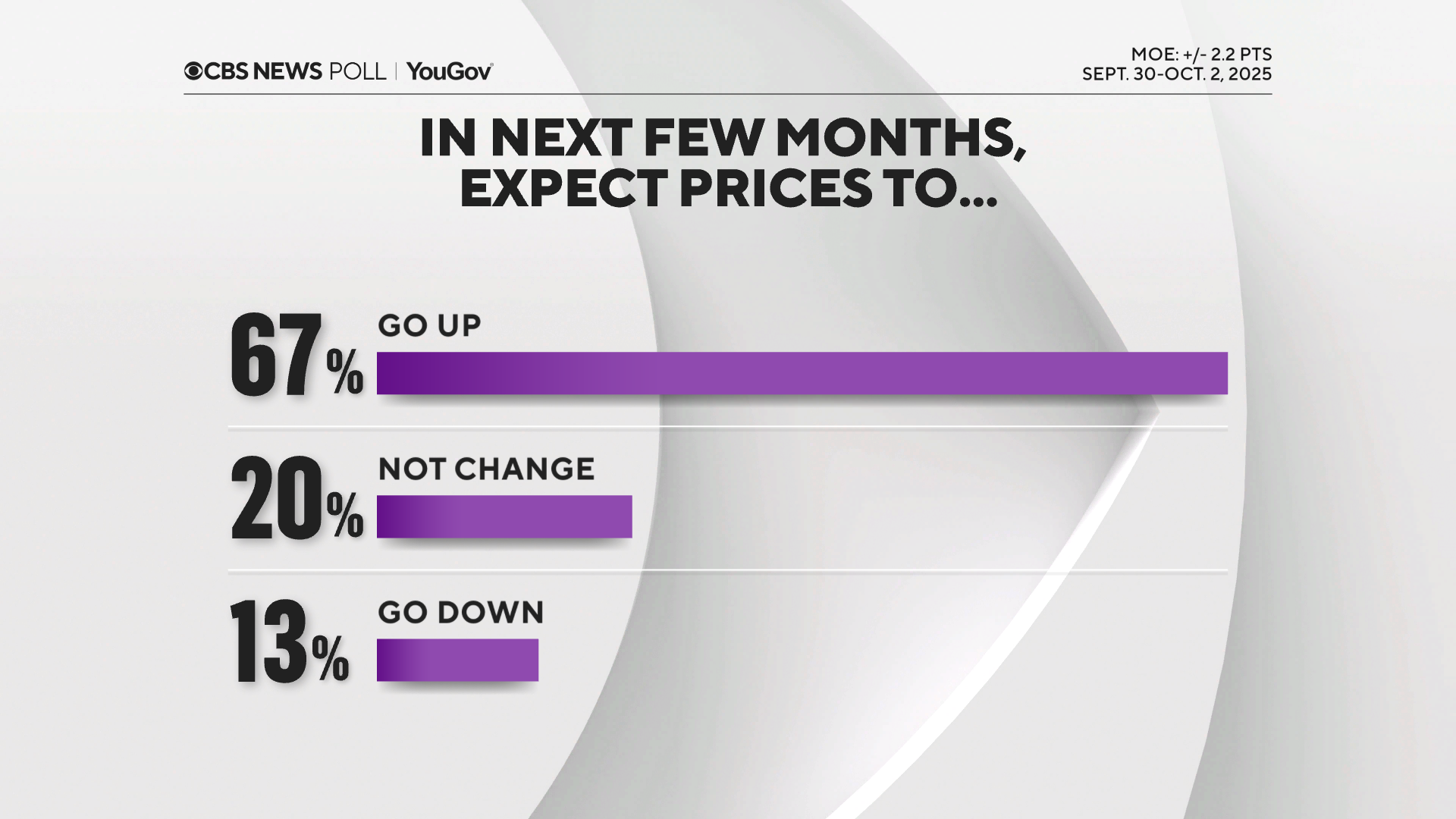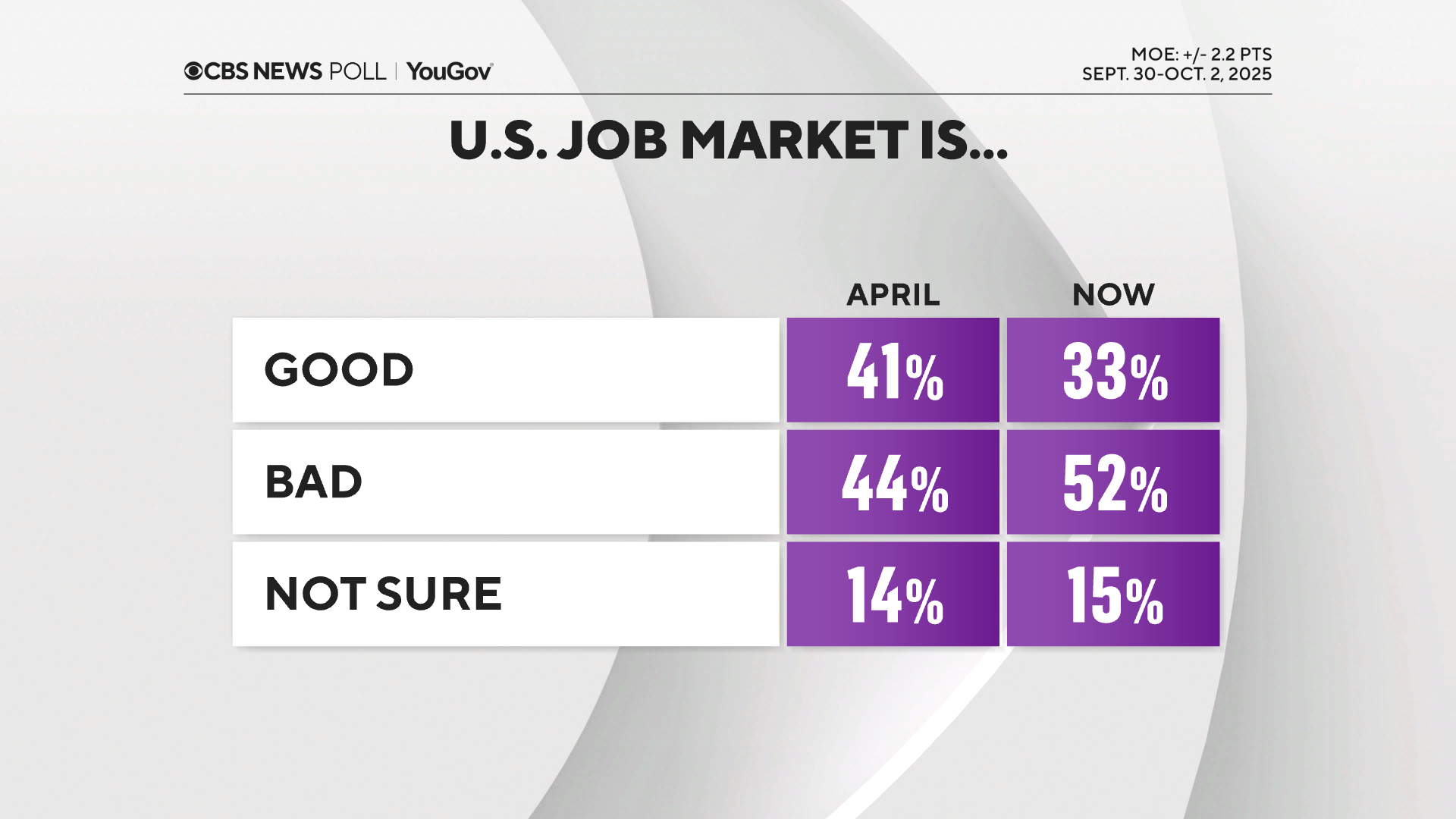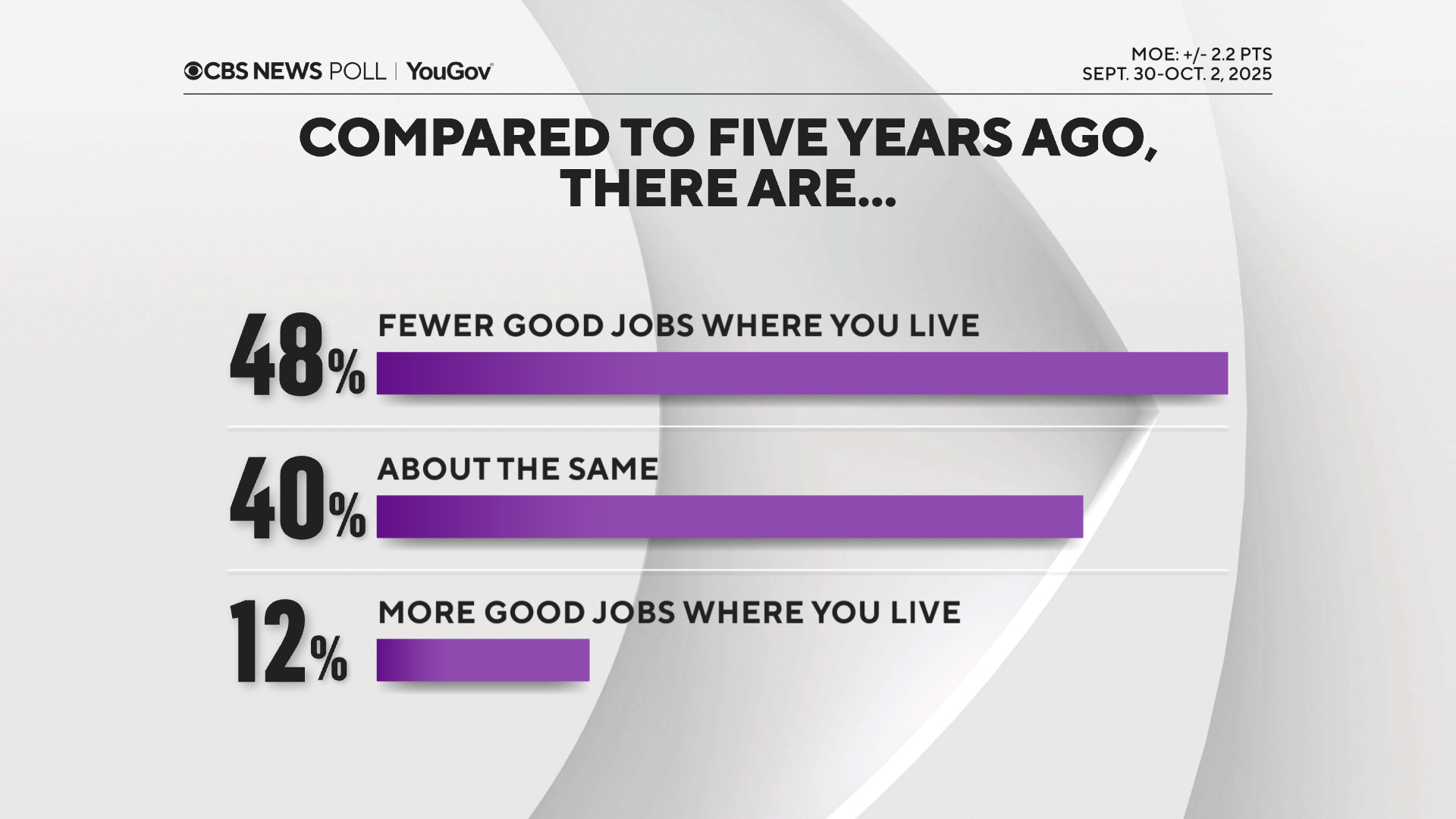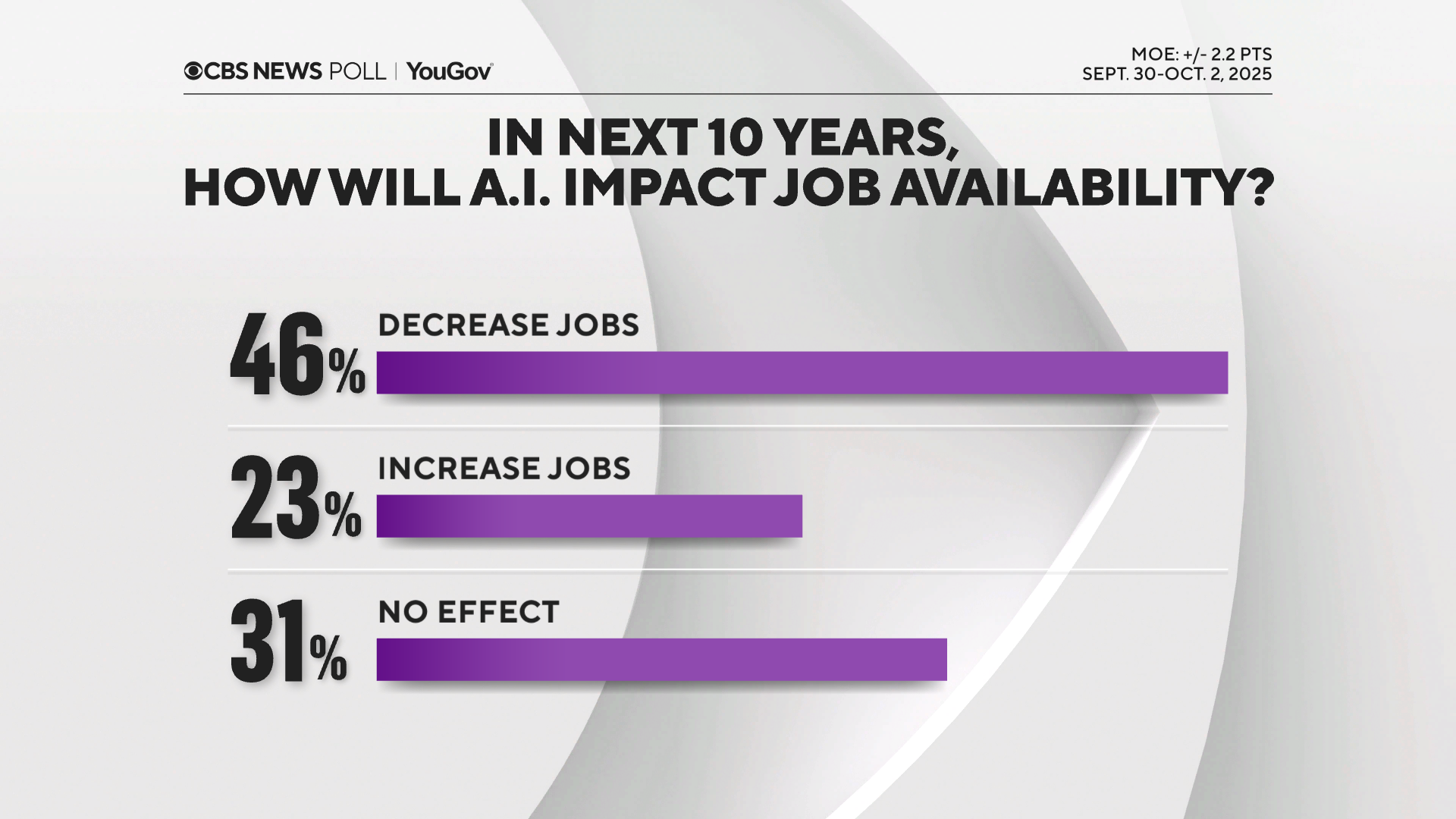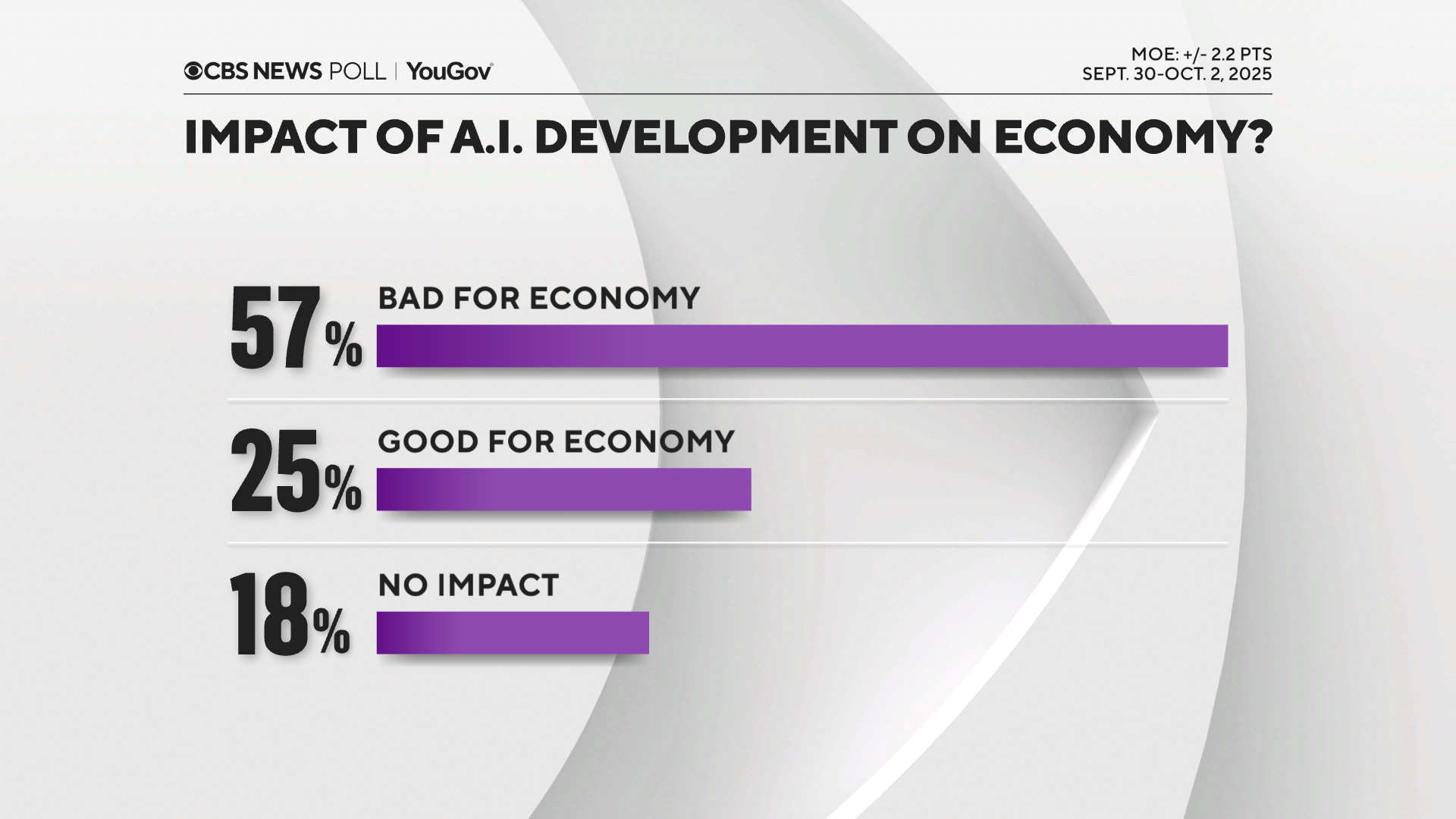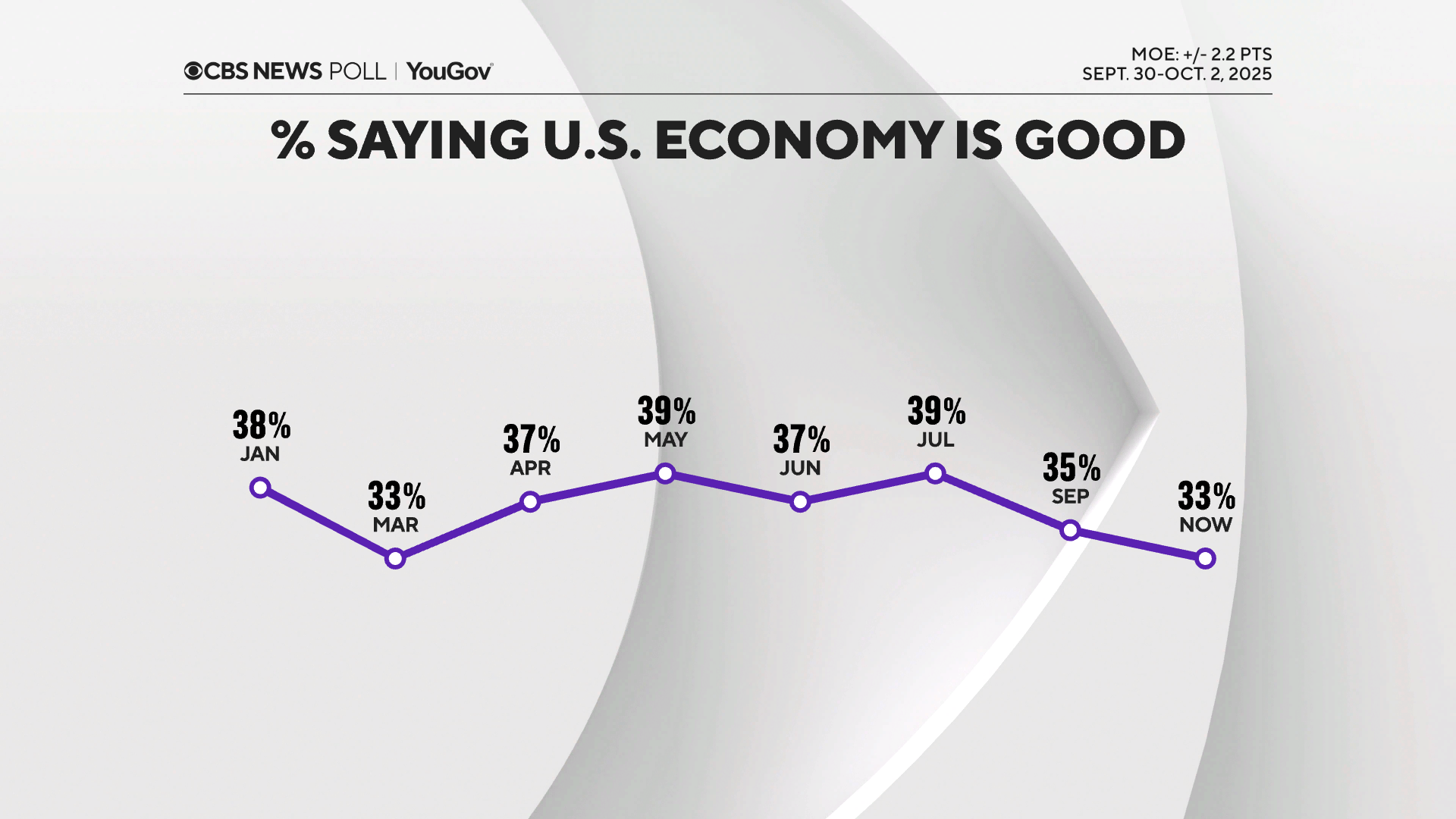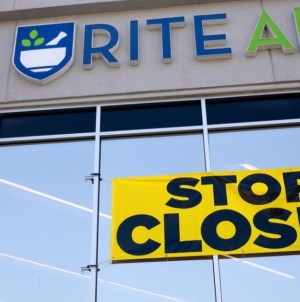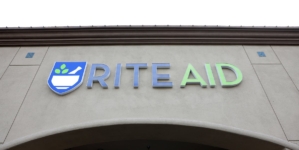-
Tigers' Zach McKinstry drives in go-ahead run in 11th inning vs. Mariners - 10 mins ago
-
San Francisco 49ers Linked to Shocking Mac Jones Trade - 20 mins ago
-
Carson Beck’s 4 TD Passes Helps No. 3 Miami Hold Off No. 19 Florida State - 53 mins ago
-
‘SNL’ Returns with Bad Bunny, New Cast for Season 51 - 59 mins ago
-
Mariners' Julio Rodríguez drives in a run to tie game vs. Tigers - 2 hours ago
-
Kansas City Chiefs Get Disturbing Patrick Mahomes Warning - 2 hours ago
-
Democratic candidates for governor focus on affordability and healthcare at labor forum - 2 hours ago
-
Cowboys Getting Explosive Offensive Weapon Back for Week 5 vs Jets - 2 hours ago
-
Kerry Carpenter clobbers two-run home run, giving Tigers lead over Mariners - 2 hours ago
-
Rite Aid closes all stores nationwide - 3 hours ago
CBS News poll finds negativity on economy, job market and concerns about AI’s impact
Pessimism about the U.S. economy and its direction continues this month — negative ratings have persisted for years — along with net-negative ratings for the U.S. job market, specifically.
And in a year that has seen plenty of announcements about AI innovations and implications, there is also plenty of public suspicion that the job market may be hurt by AI.
Today, the number saying the economy is getting worse has ticked up again, as prices continue to weigh on perceptions.
Prices continue to be the main metric people use to evaluate the wider economy. And most say in the last few weeks, prices of the goods and services they buy have still been going up. Most expect them to keep rising, at least a little, too. (This, despite relatively better assessments of what’s happening with gas prices.)
Job market
Just over half call the job market bad, and that’s a tougher evaluation than Americans gave six months ago when views were more mixed.
Some of that may be driven by prospective outlook. Most who are currently employed do feel at least somewhat, if not very, secure in their jobs right now. Yet most Americans think if they were looking for a job, it would be difficult to find the kind of job they want.
When asking them to compare longer-term job market trends they’re seeing, the picture is mixed, and the jobs market is not seen as growing. By 4 to 1, Americans think there are fewer — not more — good jobs where they live than there were five years ago, and the rest see it holding steady. Even workers who feel they have some job security tend to think there are fewer, not more, good jobs out there.
As is often the case with economic evaluations, partisanship plays a role. Republicans are less likely than Democrats to hold negative views of the job market and the economy overall.
As an ongoing string of discussions and reports speak to the potential impact of AI across a number of fields and the workplace, Americans overall hold a skeptical outlook, on balance. They feel AI will have a net-negative effect on job availability in their fields over the next ten years. This is the case for those currently working as well as those not.
Given that, more broadly, many believe the development of AI and AI companies will have a negative impact on the U.S. economy overall. This view spans both education and income levels, though it is a little less pronounced among younger Americans.
That said, for some, the view is that if a job is available, it could be easier to do as a result of AI.
Overall views of the U.S. economy, which have been net-negative for years, continued to tick slightly down from the summer.
As has long been the case, people in relatively higher income levels report their own personal financial situation being better than those at lower levels. But majorities across incomes do report prices going up.
This CBS News/YouGov survey was conducted with a nationally representative sample of 2,489 U.S. adults interviewed between September 30-October 2, 2025. The sample was weighted to be representative of adults nationwide according to gender, age, race, and education, based on the U.S. Census American Community Survey and Current Population Survey, as well as 2024 presidential vote. The margin of error is ±2.2 points.
Toplines
Source link


























